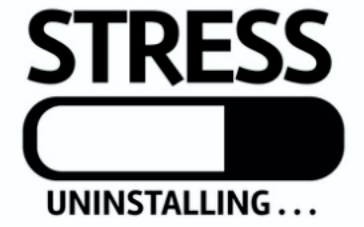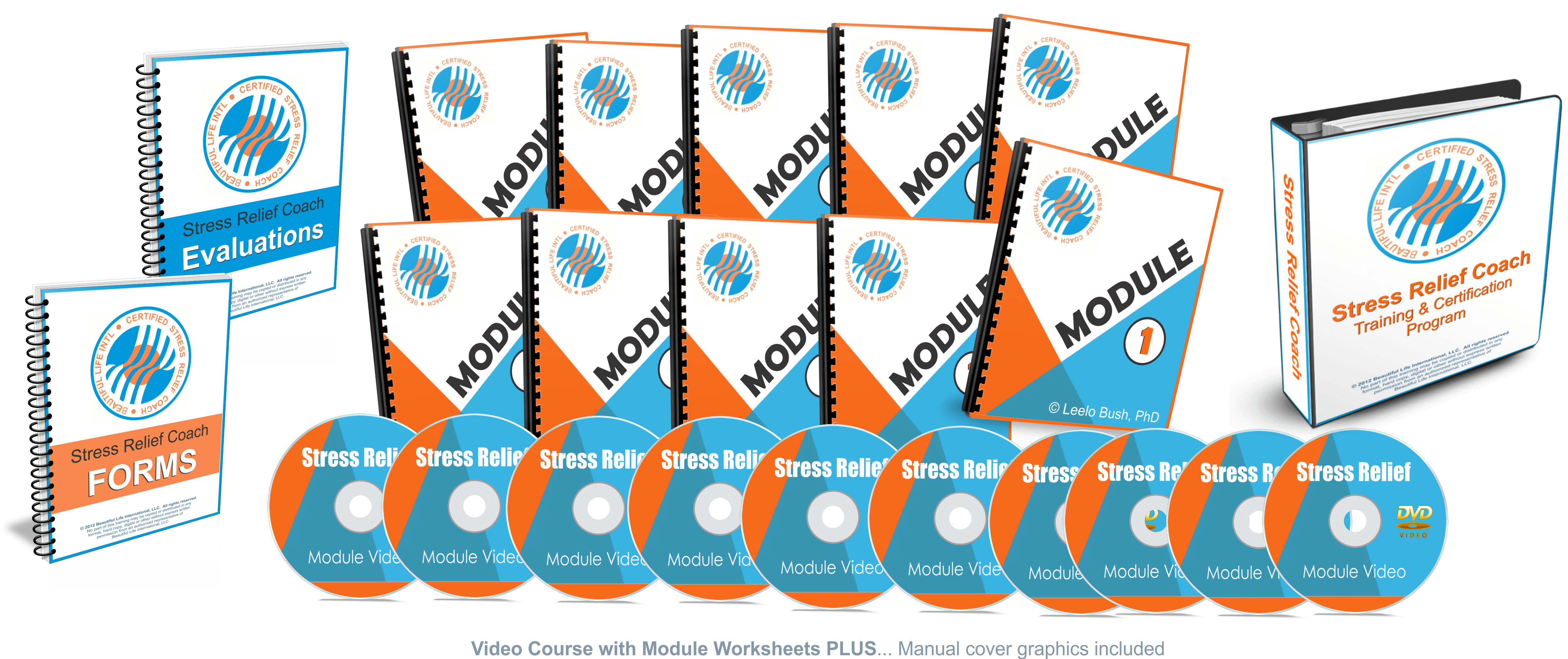Can we agree that we live in a very complex world? Is it possible to be happy, relaxed and stress free while still handling daily life? In this article I will help you understand stress and its causes as well as some great tools for managing stress. Finally, I’ll show you where you can learn more and even create a career out of helping others with stress.
Sometimes emotions can take us on a very bumpy ride. If we were completely honest, wouldn’t we all wish to go through life stress-free?
Well, we have a choice. We can let the stress of life overpower us, or discover how to effectively manage it. This can be the difference between success and failure.
With that said let us first tap into what exactly stress is and then how we can tackle it.
What is stress?
STRESS (Acronym) - Situation That Releases Emergency Signal or Stimuli.
The meaning of the term stress at first glance, seems pretty straightforward, We all know what stresses us or what it feels like to be “stressed out”. Simply put, stress is a natural or physiological response to any kind of intense demand or threat.
When is stress a problem?
On the negative side, stress can cause our brain to lose focus and spiral out of control, break down our immune system, cause adrenal fatigue, leave us at risk for heart disease, insomnia, obesity, anxiety disorders, hypertension and worse. If left uncontrolled, statistics have shown that stress can have deadly consequences. But on the positive side, stress can help to prepare us for what is to come by acting as a warning system and improve our mental focus.
Additionally, according to the A.P.A., most Americans have reported experiencing a high degree of stress, which severely affects different aspects of their lives.
According to Dr. Don Colbert, 7 of 10 visits to a primary care provider, can be traced back to stress at its origin.
What are the symptoms of too much stress?
Each individual has different ways of handling the overwhelming feeling stress brings and as such symptoms of stress can vary with different individuals. But, it is important to be aware of common warning signs or symptoms of stress overload.
Physical Warning Signs:
Muscle tension
Headaches
Fatigue
Weight changes
High blood pressure
Upset stomach
Sexual difficulties
Insomnia
Behavioral Warning Signs
Isolation
Using alcohol /drugs
Cigarette smoking
Procrastination
Conflicts
Restricted breathing
Decreased productivity
Change in appetite
Mental/ Emotional Warning Signs
Irritability/short-temper
Forgetfulness
Moodiness
Poor concentration
Feeling overwhelmed
Unhappiness
Indecisiveness
Low self-esteem
While you're here, get my FREE Chaos and Fear Survival Guide if you haven't already.
3 Stress-Producing Factors
If you find yourself experiencing any of these symptoms of stress, take a look at what might cause some of them. The three categories of stress-producing factors are:
Objective factors:
Stress can be caused by the difficult situations we face such as death or chronic illness. However, it also be caused by positive events like, getting a new job or a wedding. However, every individual experiences a different level of stress, typically due to subjective factors.
Subjective factors:
Many of our experiences play a vital role our subjective perception of stress. When difficult situations arise, we ponder how unfair and unacceptable it is, and it increases our stress. What we can do is accept whatever situation we find ourselves in and try to think about a positive solution to fix it. Then try to be aware of negative thoughts that might come creeping in. In my Stress Relief Coach certification course, we learn strategies to rid ourselves of toxic thoughts before they take hold and become our default thought.
Interactive factors:
Our daily interactions with those around us, also contribute to our experiences of stress. For example, the feeling you get when you are being bullied at school, or your very demanding and strict boss calls you into his office, you start to wonder if he is going to give you that pink slip. Also, our high or low self-esteem influences our degree of stress.
"I have said these things to you, that in me you may have peace. In the world you will have tribulation. But take heart; I have overcome the world.”
~ Jesus in John 16:33 (ESV)
Common Myths and Misconceptions
Each individual has different misconceptions of stress and those differences sometimes prevent us from living happier and healthier lives. Here are some of those myths:
If there is no symptom, there is no stress.
Stress is not like a disease so we shouldn’t always expect obvious symptoms. Sometimes we don't see a symptom until the stress has created a more severe physiological response.
Stress is purely negative.
Stress can sometimes be good. We need a certain amount of stress in order for us to remain alert and perform well. This stress creates variety which is needed for optimal mental health.
Stress is the same for everyone.
Not true. We are all unique and as such have unique experiences.
Stress is everywhere and you cannot do anything about it.
While you can’t control what happens in the outside world, you can find better ways to respond and solutions to relieve stress symptoms.

Underlying Physiological Responses
"To understand the stress response, we must possess a fundamental knowledge not only of psychology but of physiology as well." ~ George EverlyAre you familiar with the fight, flight or freeze response? This occurs when there is a physiological reaction to stress from the hormones released by the adrenaline glands. Yes, that “Adrenaline rush”, we all hear about. It makes your heart beat faster, your muscles tighten up, and your blood pressure rises and makes you feel like you can lift a truck.
These responses are exactly what we need in that moment in time. But when our body stays in stress response mode over a long period of time, those types of chronic stress responses can contribute to damaging effects on the body. I include much more in-depth training on this topic within the Certified Stress Relief Coach course.
What are some Relaxation Techniques?
There are many techniques to help us manage or even eliminate our stress. These strategies include:
- Deep breathing
- Getting a massage
- Relaxation
- Exercise
- Dancing to your favorite music
- Visualizations
Also, try to remember that everyone is different and as such, something that helps another person might not help you. So it’s important to try various techniques to learn which ones work best for you.
Biblical remedies for handling stress
Have you ever found yourself Googling, “how can I relieve stress?” Or “What can I do to make stress go away”?
Even in 1 Kings 19, we read how Elijah was so stressed out he wanted to end his life but God made a way out for him. So as Christians what can we do when our faith weakens and our worry and anxiety overwhelms us?These biblical methods are not new but they are steadfast tools that help us re-route our hearts to our redeemer.
P.R.A.I.S.E
Pray:
1 Thessalonians 5:17 “Pray without ceasing”
Sometimes going to God in prayer seems easier said than done, meaning there are times when we feel so burdened down, we may not even know where to start. Having daily devotions with Christ can help us, remember P.U.S.H- Pray Until Something Happens. These scriptures can help you with your prayers as well. (1Thess. 5:17; Jer. 29:11-14; 1 John 5:14-15)
Read Scriptures:
Psalms 119: 105 “Thy word is a lamp unto my feet”
God’s Word repeatedly reminds us that when we are surrounded by darkness the word of the Lord is like a flaming torch that guides us through our walk of life. It is up to us to meditate on these Scripture and invite the Holy Spirit to work in our hearts. (2 Tim. 3:16; Matt. 4:4; Joshua 1:8)
Ask for help:
1 Peter 5:17 “Cast all your anxiety on him, because he cares for you.”
My friend, you do not have to do it alone! Don’t wait until you’re at your breaking point before you ask for help. Seek help from friends, family, or even members of your church, and along with that, here are a few scriptures you can read. (Rom. 12:4-5; Prov.11:2; Ex. 18:14-15).
Identify the problem:
Psalms 32:5 “I acknowledge my sins unto thee and my iniquity have I not hid.”
Before we can seek help, we must first ask ourselves, “Why do I need help?” Be honest with yourself. Find the root of your stress and then you can begin to fix it. (Psa. 32:2; Psa. 51:3)
Seek community:
Romans 12:5 “So we being many are one body in Christ and every member one of another”
In his word, God encourages us to take care of our fellow brethren; he doesn’t want us to live in isolation. The body of Christ is meant to help us during difficult times. Even a simple prayer request over text messages can help to lift each other up. (Heb. 10:24-25; 1 Cor. 12:25-27).
Examine your load:
Galatians 6:5 “For every man shall bear his own load”
The Apostle Paul reminds that we are responsible for our own burden, in other words, we are responsible for what’s on our plate. This does not mean you have to bear it alone, the bible also encourages that each one should help another. (Psa. 55:22; Gal. 6:2)
Summary
These biblical practices will help us in every part of our lives. We may not have a stress-free life but we can live a less-stressed life.
So today let us put on the full armor of Christ, look at ourselves in the mirror and say, “With Christ in the vessel, I will smile at my storm!”Thoughts Create Emotions. What?

It's important to understand that our emotions don’t create our thoughts. Rather, our thoughts create our emotions.
Consider this: Until you think about something and assign a meaning to it, you don’t feel an emotion related to it. And the meaning you assign to it, depends on the values you hold most dear. It's then the emotion fuels our action or behavior.
Become a Certified Stress Relief Coach
Learn to do evaluations and coach individuals, groups and even create corporate stress management programs. All this is included in our Certified Stress Relief Coach course.
Join us! Details HERE.



